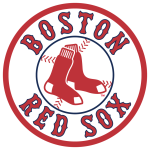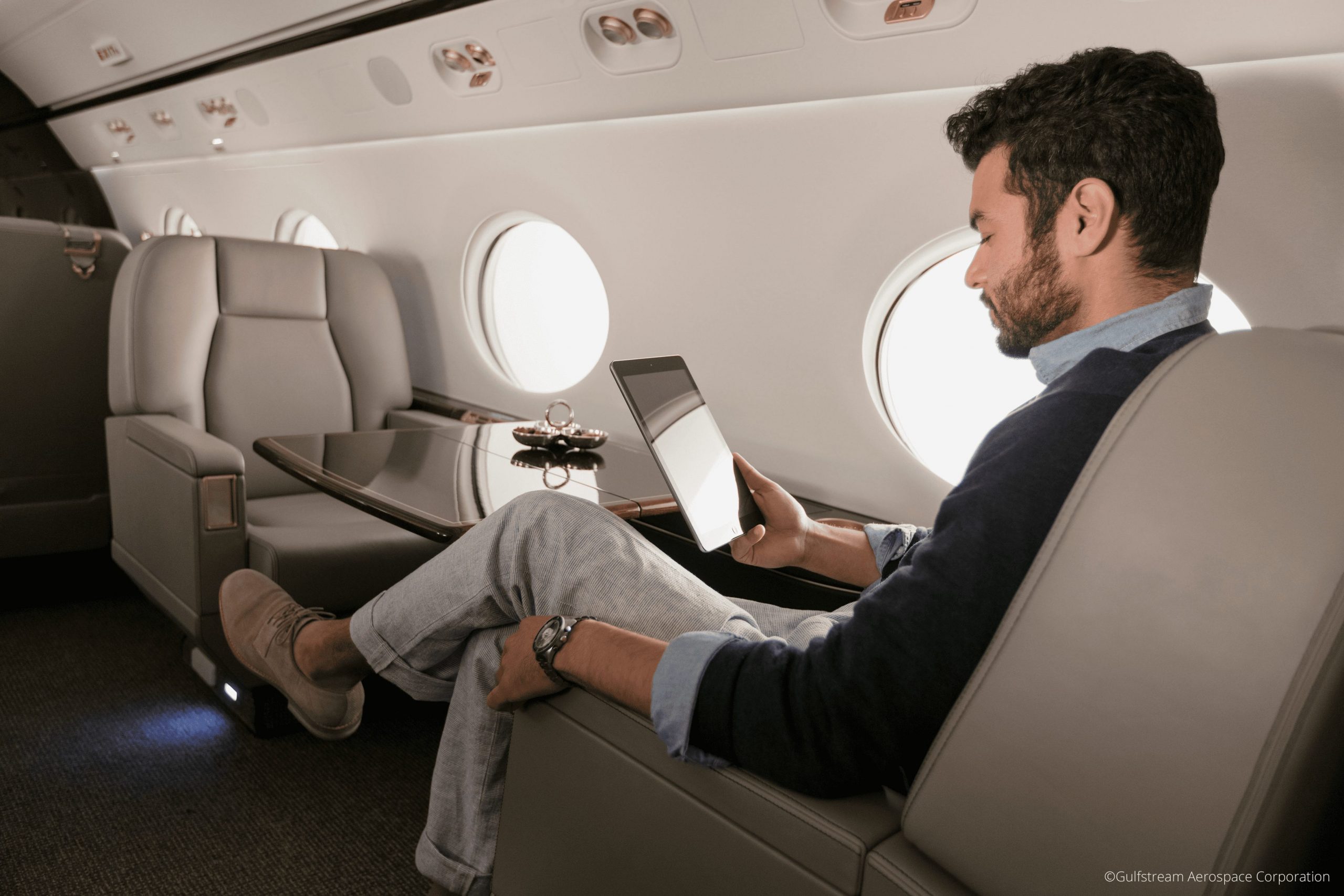FUBU’s founder Daymond John now travels by private jet, maintains offices on the 66th floor of New York’s Empire State Building and has a net worth that has been estimated at $100 million. These days, in addition to overseeing his clothing line, he owns and invests in a wide variety of other businesses, including some in the health/fitness and technology fields. And he is in his fourth season of starring on ABC-TV’s Shark Tank, where budding entrepreneurs pitch their ideas to him and such other venture capitalists as Mark Cuban.
Not bad for a guy who started out hawking $10 hats on the street.
What were you like as a kid?
I was a normal kid who was too smart for his own good and thought he knew everything. I decided not to go to college because I had to help support the house but I thought I was going to be rich no matter what. I took [what I thought would be] one year off [before starting] college. Then before I knew it, I was 21 years old, working in Red Lobster. All my friends who went to college were coming back and I’m serving them shrimp and I’m embarrassed.
And then you went shopping for a hat.
I was looking for one hat for myself. I drove all around and finally went all the way uptown in Manhattan and found a place that sold it.
But it cost too much?
I figured, “I can make these myself.” I didn’t make them for the purpose of selling them. But when I bought a nice sheet of fabric and made them, I said, “I can’t wear all these hats.” There were like 40 or 50 of them. I said, “Let me try and sell a couple.” And those things flew like hotcakes.
Right on the street?
Right on the street. The Friday before Easter Sunday, 1989, I sold $800 worth in Queens. I remember driving back and counting the money and-
I was about to ask you about that story, about how you were counting the money as you drove and you hit another car and the repair cost $800-exactly the amount you’d just made. When I’ve heard you tell that story, it has sounded as if you saw some sort of lesson in it.
No, just that a grown man could still cry. [But from the sales], I learned that I was able to create something with my own hands and sell it, and I was in charge of my own destiny.
So you started making hats and shirts and then you got rap and hip-hop artists to wear them in their videos. How’d you convince them to do that?
That happened after going on their tours for so many years. Once I was sitting on video sets all day, I would just offer [the clothes] to the guys to wear. And a few would. I ended up sitting on about 50 video sets and maybe about 20 times it worked. The other times, they just said, “We’re not gonna wear it.”
What was distinctive about your clothes?
The label was great-kind of cartoonish. Also, prior to FUBU, when you would buy urban or Afro-centric clothes, they normally came in the colors of kinte cloth-yellow, green, red or all three together. What I would wear would just be black with a navy blue or yellow [label]. A little loud still but it wasn’t Afro-centric.
And you were aiming your clothes at a certain culture?
Yeah, and we found out the culture was way bigger than what we thought it was. It didn’t have a color to it but we ended up finding out the culture [included] Japanese kids. The first couple of places the clothes sold were Japan and-
Seattle?
Yeah. It was the skateboarders, the grunge movement, the rockers. It was a form of rebellion.
You became successful around 1998?
Well, see, you’re counting money as success. I don’t think success is money. I think success is doing what you want to do every single day. The monetary part of the success didn’t come till I was around 29. I had a freedom to do what I loved at 20 years old.
So what is it that you love to do?
I love the freedom to not be nailed down to a desk. I love seeing people get excited and helping people, looking at that sparkle in their eyes and seeing people unlock [ideas] while you’re working with them. I love to develop brands-it’s like doing a jigsaw puzzle. And I love to keep learning.
You’ve said that the rappers wearing your clothes in videos helped you launch FUBU. Do you think you could pull this business off today, now that music videos aren’t so important?
I still [use video] with all my new brands but I’ve added reality shows to [the mix]. They’ve taken the place of soap operas. I worked with the Kardashians their first three years with one of my brands. So the vehicle’s the same. Actually there’s more opportunity out there.
Let’s talk about Shark Tank. You’ve said you invest more in the entrepreneur than in the business idea. What makes a great entrepreneur?
I think a great entrepreneur is learning every day. An entrepreneur is somebody that doesn’t take no for an answer-they’re going to figure something out. They also take responsibility. They don’t blame anybody else. And they’re dreamers in one sense but they’re also realistic and they take affordable steps when they can.
How many companies have you invested in on the show?
Maybe 25. Talbott Teas had the most success in the sense of immediate flip of money. I made half a million or a million dollars off of that. That’s a one-time hit. A few of my other companies may be pushing off $200,000 a year for 10 years.
What have you learned from the show?
I learned that even though there are a lot of stupid and crazy people out there, you really don’t know what will be the next Pet Rock. There’s this guy who came on with this eyeglasses holder you attach to your shirt. Stupidest thing in the world. I’m calling the guy a bozo, I’m calling [fellow shark] Lori [Greiner] a bozo. But $3 million later with Lori…maybe it’s not that stupid. Some of these people coming on the show, they’re 18, 20 years old and they’re showing me a whole other dynamic on how the world is working. It’s fascinating.
Say Shark Tank had existed back when you got your first big orders for FUBU and you’d gone on the show pitching the business. Do you think the other sharks would have invested in it?
Yes. You see, sales cures all. Anybody that goes on there with sales has a shot at a deal. But if right before those sales I would have said to Shark Tank, “I have all these artists wearing my clothes but I have never made anything in my life besides a couple of hats and I don’t have any financial intelligence,” I probably wouldn’t have made it past casting.
Has success changed you?
It’s changed me in many, many ways. One thing about success is that you end up loving the people that work for you more. There’s an inherent responsibility to people’s families and careers. You have to take care of these people because they believed in you. Initially I was a very tough boss. Now I think I’m a marshmallow.
What caused that change?
In the years when my destiny wasn’t fully laid out and I couldn’t say that I would be wealthy forever or the brand would last, when people were doing things wrong I would take it as “you are jeopardizing my future and everybody else’s.” So I would fire them or whatever I had to do. But then I began to realize that people aren’t really bad; they’re just doing what they need to do to get by and you need to understand that. If you can embrace that part of them but still get what you need [you’ll get good results]. Say, “I understand what you’re going through. Just can you do this for me? We can do this together.” Then you get way more. And you don’t have a heavy turnover and people have a good time.
Any regrets?
I don’t have any regrets but we’ll be here all night if we talk about mistakes. I wish I had educated myself more initially because maybe that nine years of struggling would have been shortened. But maybe I needed that. Also, I had a divorce and lost my family due to traveling and getting sucked up in the life of business.
Are you less of a workaholic today?
Absolutely. Take time for your health, take a lot of time for your family. I’ve been around the world maybe three times and from around age 25 to 35, the whole world was purely an airport, a hotel, a conference room, a restaurant, maybe a club, and that was it. I never got to enjoy the world. Now I enjoy the world.
When did you first fly privately?
I purchased a jet around 1999. I remember it wasn’t ready one day so I went to a [charter] service to get a jet and they sent me my [model] jet cheaper than I would have paid for the hours. So I stopped [owning] in 2002. After that, I’ve chartered maybe 20, 30 times a year.
Now you’re exclusively using charter plus hopping rides with friends?
I fly commercial once in a while but I use Magellan Jets for the most part and also hop rides with friends. I have a jet card with Magellan. I tend to use the jets when I’m traveling with six or more people or I need to do four cities in a day.
How has flying privately helped your business?
I do a lot of speaking and with Shark Tank there are a lot of deals and negotiations and [I’ve saved] the time that I would be sitting in airports. And you do deals in the air. What would take me a week in a commercial flight would take me two days in a private jet. And now as Shark Tank gets more popular I tend to get stopped more [if I fly commercially] and it chews up a lot of time because the people that stop me are usually pitching businesses.
Tell me about your meeting with President Obama.
It was a fundraiser, his first time [running for president]. He turned around and somebody said, “This is the guy who started FUBU.” He yelled out, “The greatest entrepreneur of our time!” I looked around. I didn’t know who he was talking about. And then I was high on myself-and then I heard him say to someone else, “Ah, the greatest entrepreneur of our time!”
But what I love is that he always says this country is “for us, by us.” I wouldn’t say that it was because of me but, hey, a sitting president is using the acronym that I came up with in my basement! I’m going with that to the grave.
READ FULL ARTICLE HERE














